As the demand for e-commerce and frictionless fulfillment continues to grow, warehouse managers will play an essential role in streamlining the supply chain. In this fast-paced environment, a warehouse manager needs to be able to identify potential issues and take action quickly. A strong resume that stands out from the crowd is essential for anyone interested in this field, and these tips will help you land your next warehouse management job. Read on for advice on how to stand out from other applicants, even with so many experienced professionals also looking for work. An effective resume is often the first step toward landing a new job or career opportunity; it’s your first impression of a company and its recruiters. In addition, a well-written resume is essential if you want to get an interview and sell yourself as the perfect candidate for the job. It doesn’t have to be complicated.
Warehouse Manager Resume Example

Download This Warehouse Manager Resume as PDF
Production Manager Resume Example
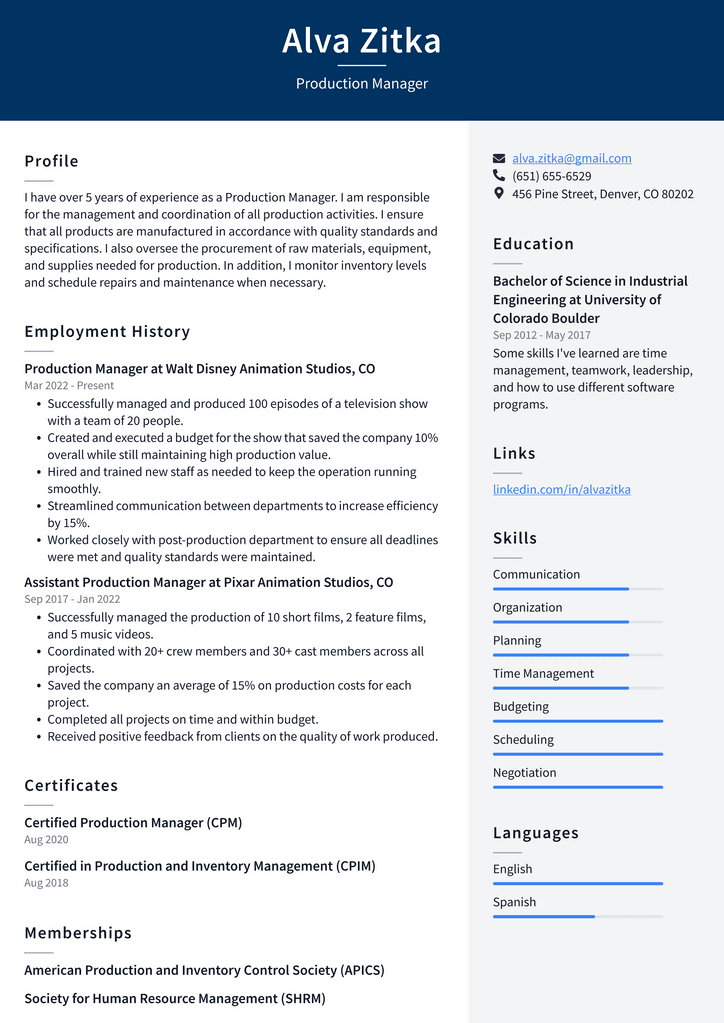
Download This Production Manager Resume as PDF
Logistics Manager Resume Example
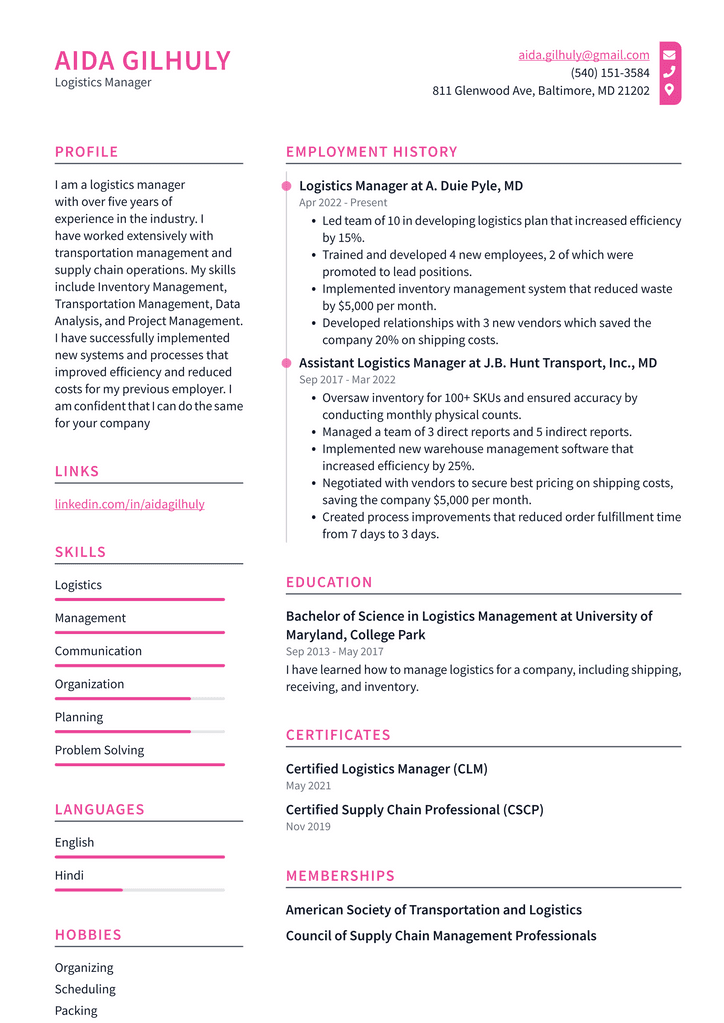
Download This Logistics Manager Resume as PDF
Supply Chain Manager Resume Example
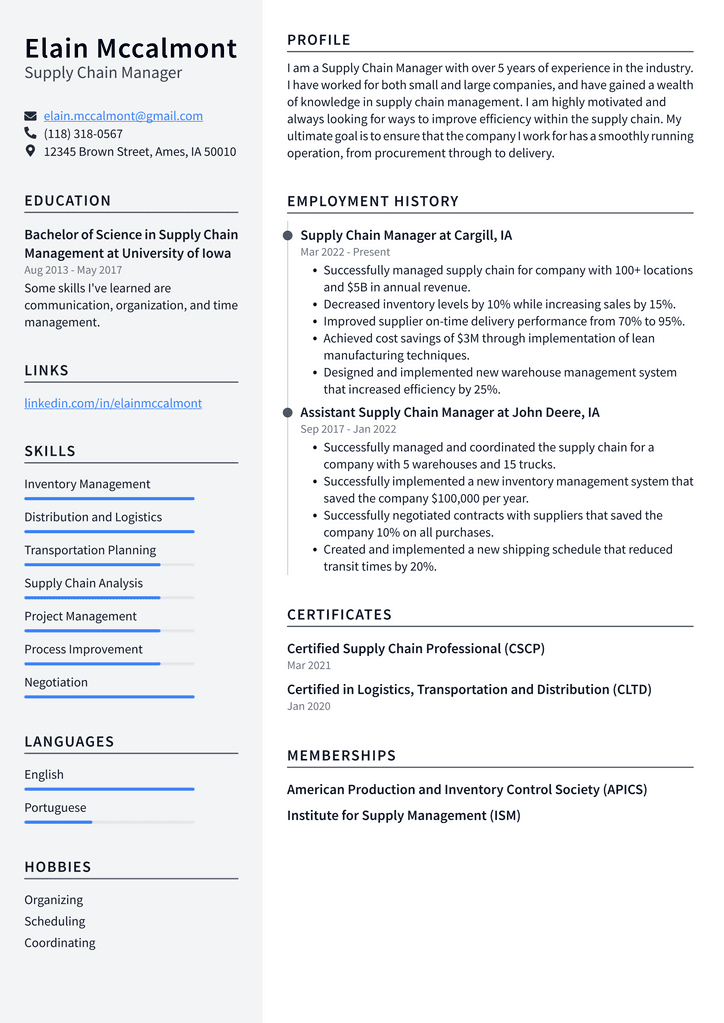
Download This Supply Chain Manager Resume as PDF
Distribution Manager Resume Example
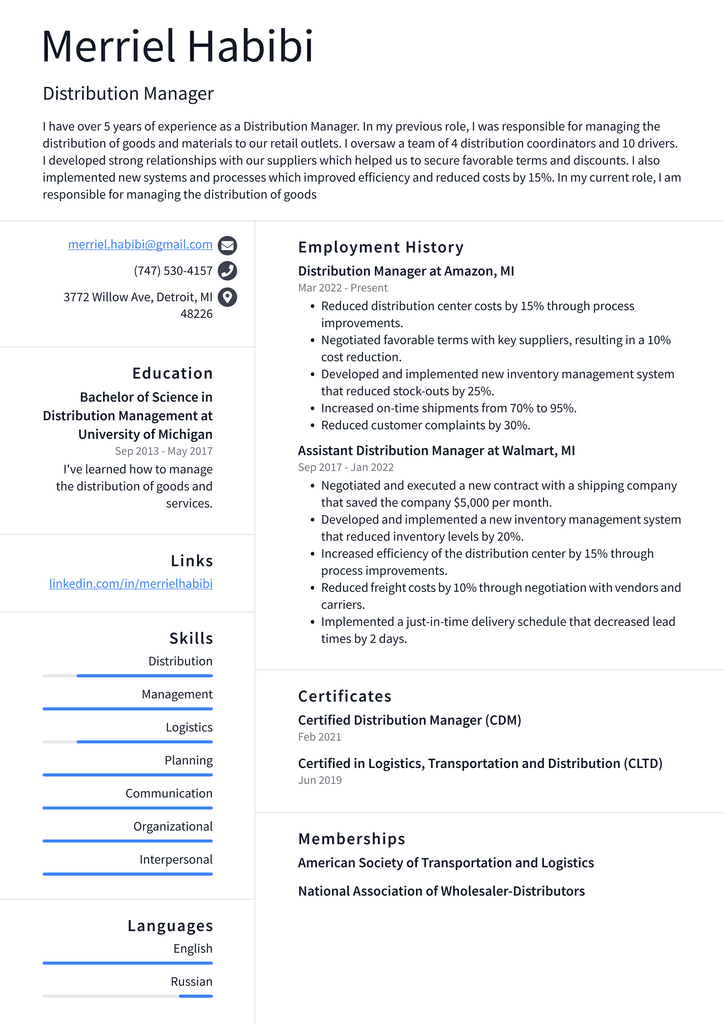
Download This Distribution Manager Resume as PDF
Warehouse Operations Manager Resume Example
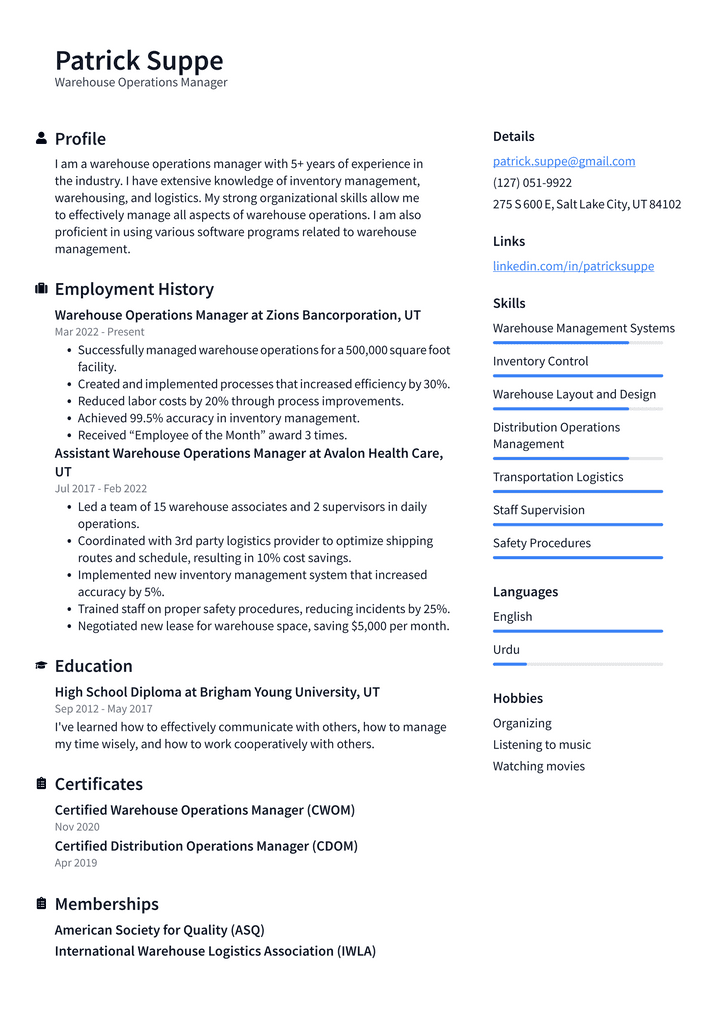
Download This Warehouse Operations Manager Resume as PDF
Inventory Control Manager Resume Example
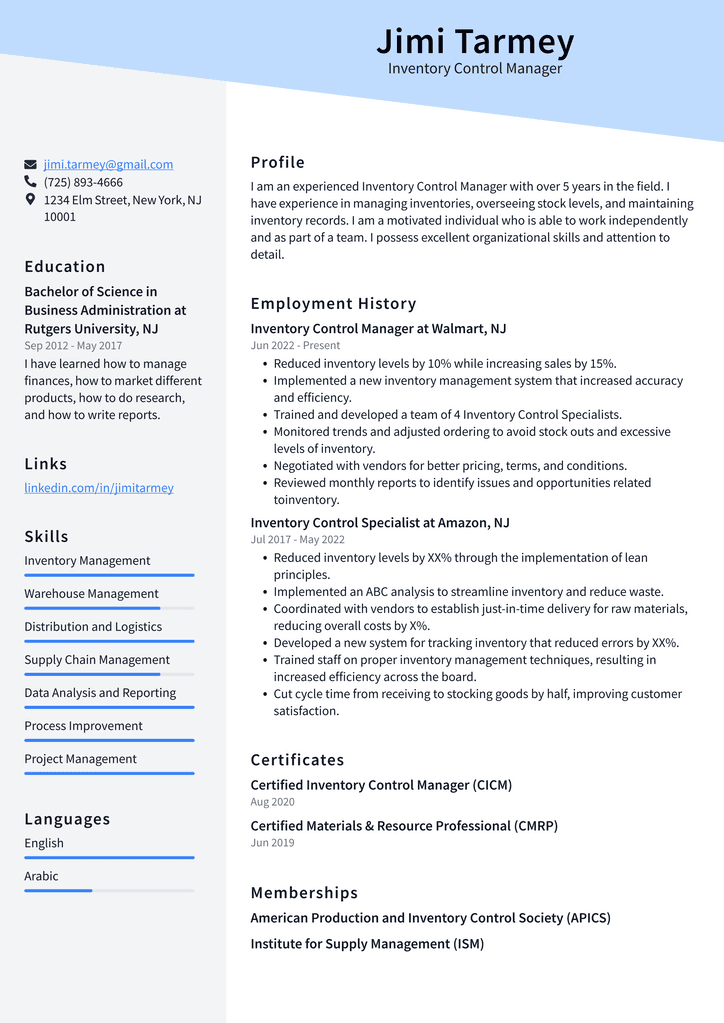
Download This Inventory Control Manager Resume as PDF
How to Write a Warehouse Manager Resume
A resume should be tailored to the job you’re applying for. For example, if you’re applying for a warehouse management position, your resume will differ from someone applying for sales or customer service. You can find examples of resumes for warehouse management positions online. When writing or updating your resume, start by listing your skills and experience. This will help you determine what you should include on your resume. Next, draft your resume by following these tips: – Start with your name and contact information – You’ll want to make sure this is clear and easy to find. – Include a clear objective statement – This section at the top of your resume lets the hiring manager know why you are applying for the job. – Include relevant job experience – Make sure to include any warehouse experience. – List your education – Include any warehouse management classes you’ve taken. – Proofread your resume – Make sure there are no spelling or grammar errors.
Summary of Responsibilities
A warehouse manager oversees the operation of a warehouse to ensure it runs efficiently. This includes monitoring and managing inventory, staff, and shipments to meet customer demand. A warehouse manager may also be responsible for the maintenance and upkeep of the building and equipment. Here are other critical responsibilities for a warehouse manager: – Working with suppliers and managers to identify needs or issues that could affect the warehouse operations – Monitoring and managing inventory to ensure the correct items are available at the right time – Developing and implementing warehouse processes and procedures – Communicating effectively with employees, management, and customers – Identifying new technologies and trends that could improve warehouse operations.
Keywords and Skills
Although qualifications and experience are the most critical components of an effective resume, targeting keywords from the job description can help you immediately impact hiring managers who are scanning massive numbers of applications. Employers use keywords to describe the job, such as warehouse management, supply chain management, transportation, inventory management, and more. Targeting these words and phrases will help your resume get noticed in a sea of applicants by standing out as a more relevant and qualified candidate. Here are some keywords related to warehouse management: – Inventory management – This is the process of tracking items in a warehouse and making sure they are available when needed. – Kanban system – A type of inventory management that involves moving items from one location to another in a controlled way. – Logistics – The management of the flow of goods and services from supplier to customer. – Supply chain – The sequence of activities involved in producing and distributing goods from the supplier to the customer.
Professional Experience
Listing your previous professional experience is a must on any resume, but it’s essential to highlight your most relevant work experience. Highlight the skills, expertise, and experience you gained while employed. Make sure to include the company’s name, location and dates of employment, and your title or job description. Here are some examples of warehouse management experience: – What is the most relevant experience for the job you are applying for? Make sure to list it first. – Include all relevant work experience, even if it’s not in the warehouse industry, as long as it is relevant to the job you’re applying for. – If you have gaps in employment, include a section about your activities during that time.
Education
Education is another essential section of a resume. It’s a great place to highlight any certifications or specialized training that relates to the job you’re applying for. Here are some examples of warehouse management education: – Include any warehouse management certifications or technical training.
Conclusion
Warehouse managers play a vital role in ensuring efficient and timely delivery of goods. To land one of these roles, you’ll need to write a resume that shows your potential employer that you’re the right fit. Your resume is your opportunity to showcase your skills and experience, so use these tips to ensure your resume is top-notch.